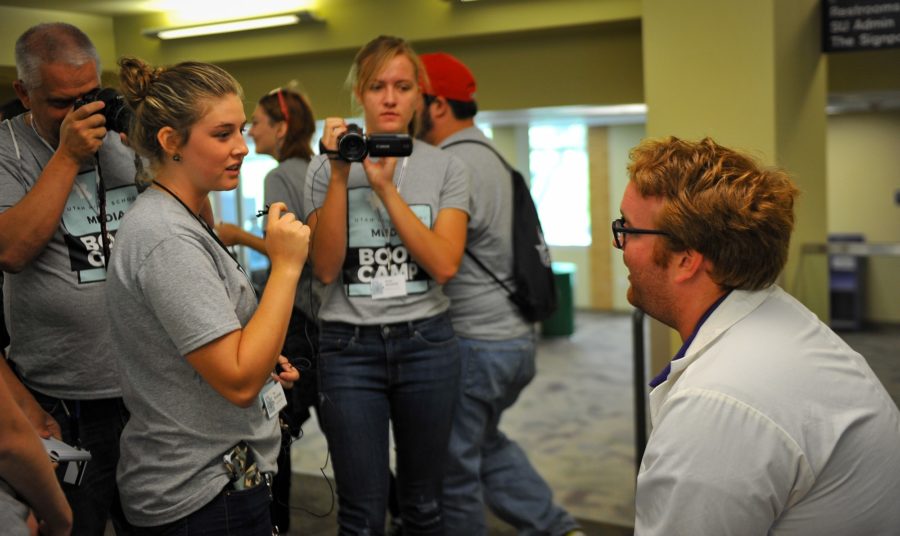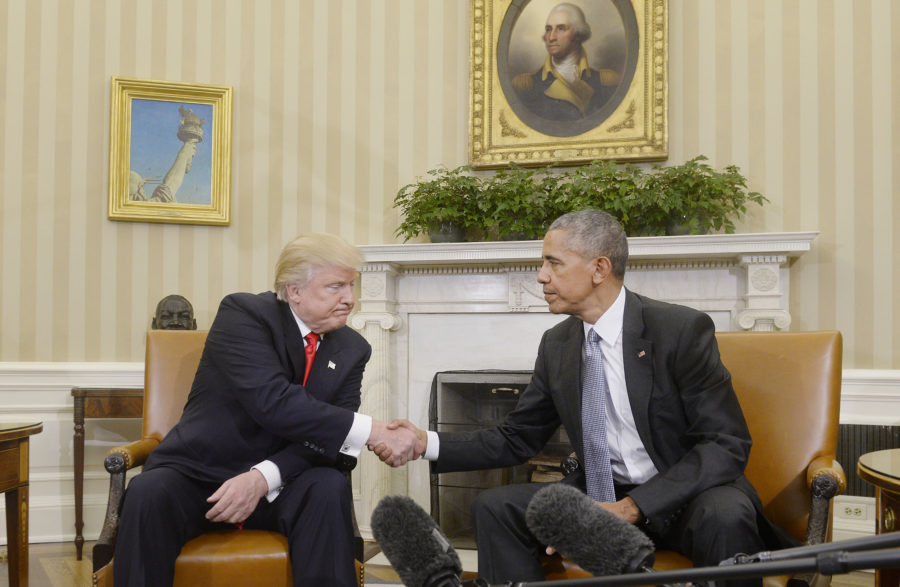A wise man once said that a person, at any given time, should be asked to stand on a stage. Once on the stage, that person should be handed a script consisting of their last month of Facebook posts. The auditorium would then be filled with every one of that person’s Facebook friends. As soon as every last relative, high-school acquaintance and friend-of-a-friend has filed in, the reading would begin.
This scenario, of course, would be terrifying for both the reader and the audience. Mixed in with the usual detritus of mundane posts like “School started — cue STRESS” or semi-humorous Internet memes would be the occasionally embarrassing photo, political or religious opinion, or personal information which that person would be hesitant to share in real life.
The argument could easily be made that postings made on Facebook and other social media sites like Twitter are really no different than the aforementioned scenario. While the audience is less captive in real life, it does not mean that every distant relation or English 1010 classmate is without the chance to peer into every public nook and cranny of that poster’s personal life.
One aggravating aspect of over-sharing through social media is the idea that “if I post this, I’m sure everyone I’m friends with will agree.” There is a certain consternation that arises when arguments on comment sections inevitably begin.
“Can’t they have the decency to let me say what I say?” the poster might argue. “They are not respecting my right to free speech.”
True, Facebook has given mankind the ability to publicly display, with quick and easy access, every detail and opinion of life. Each feed is filled with free speech on matters conservative or liberal, religious or secular, relational or personal. Casual trolling turns up an array of photos from parties, childbirth, surgeries or the ever-popular cell-phone-shot-of-me-in-a-mirror-with-my-abs-showing.
Whether or not these postings are appropriate is an irrelevant argument. Everything can be interpreted as being either appropriate to one person or inappropriate to another. It doesn’t matter.
The argument to be made is that free speech is free, in that it is legal to post publicly that which we want to post, but free speech has never been free-of-consequence speech.
No one stops a person from posting every gritty detail of a recent breakup, but it’s also completely fair to assume that the general opinion of that poster can change when viewed in public.
Political opinions seem to reproduce on the Internet, but for every action, there is an equal but opposite reaction. Each political post is an opportunity to offend friends who might have differing mindsets, and their right to express themselves is just as valuable as the original poster’s.
Religious arguments are a touchy subject, especially when it comes to the Internet. There are virtual places for people of the same faith (or of no particular faith) to congregate and confer, and it should be a common decency to leave these posts alone. This does not mean they will be left alone, or ever have been.
Public opinion fuels the world of social media, and there is much good which comes from it. But it is important to remember that, though a mother-in-law might be very glad to see photos of the birth of a poster’s child, the poster’s dentist might not be. And though a group of friends might delight in ratifying each others’ political opinions, a prospective employer might be less than thrilled at what is publicly displayed.














